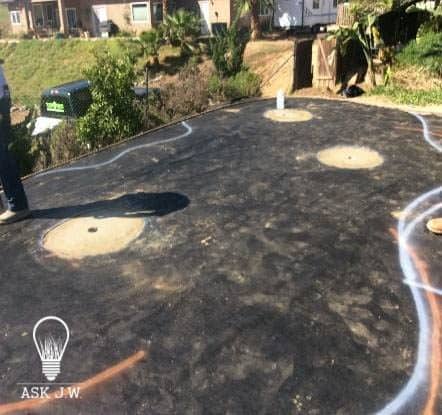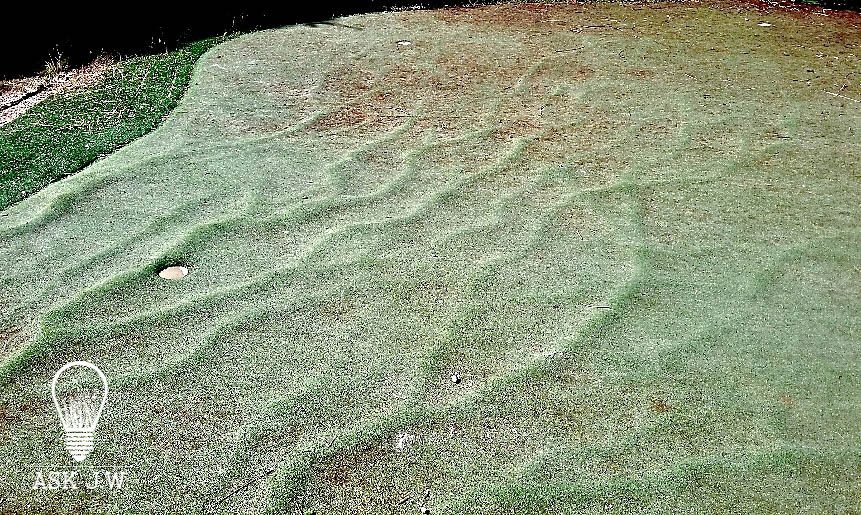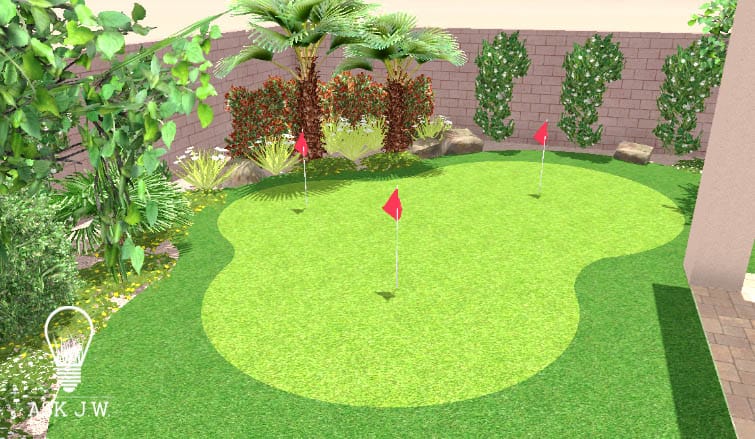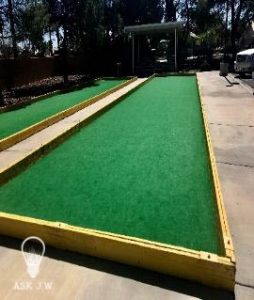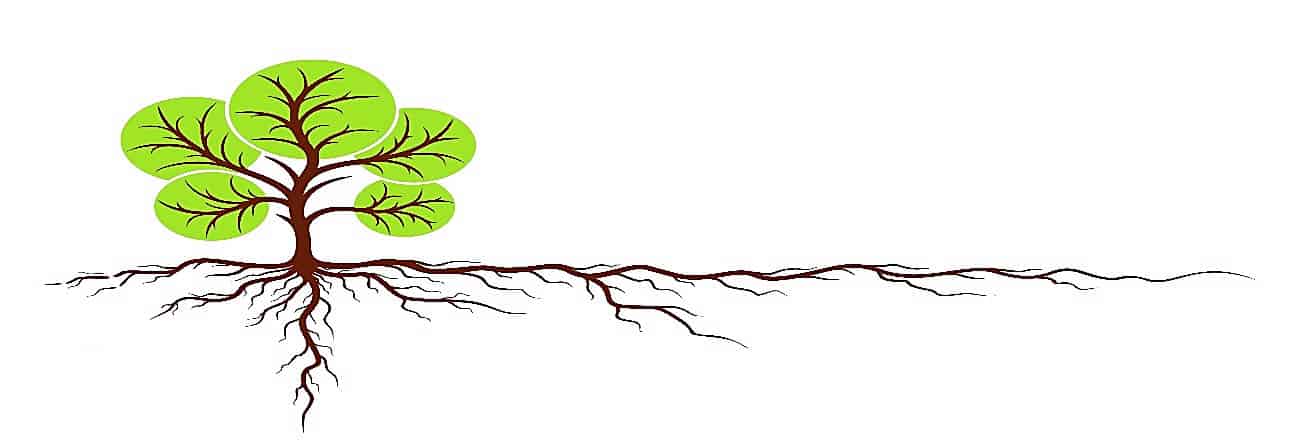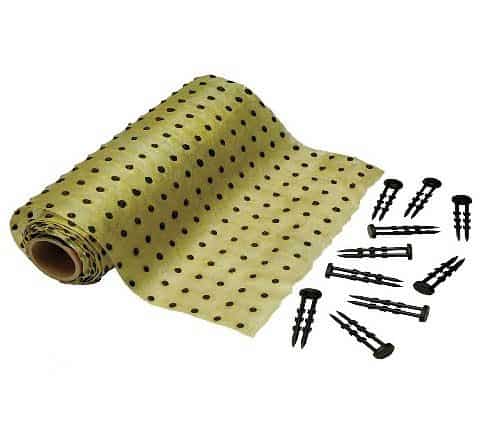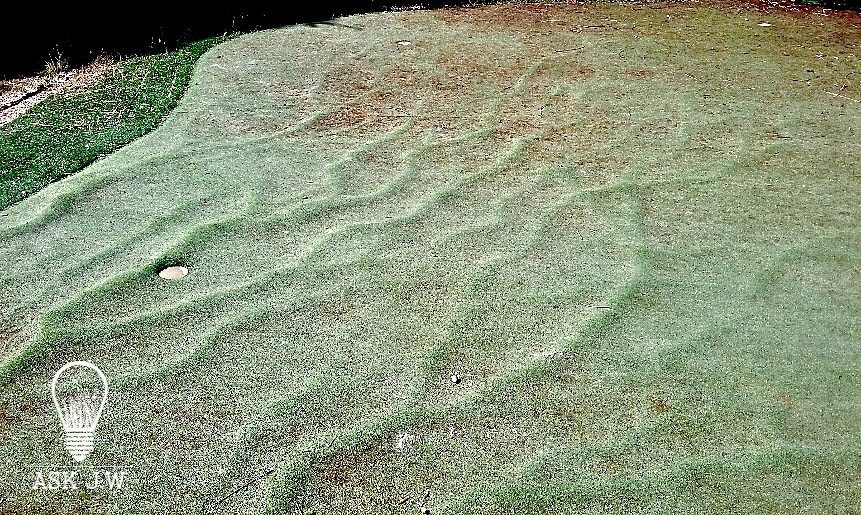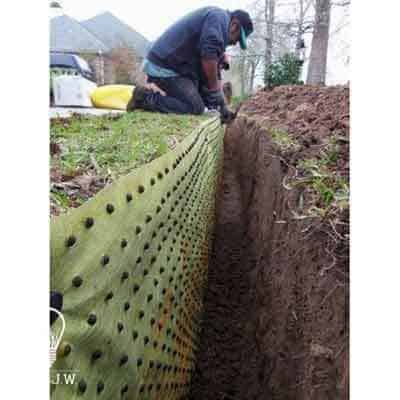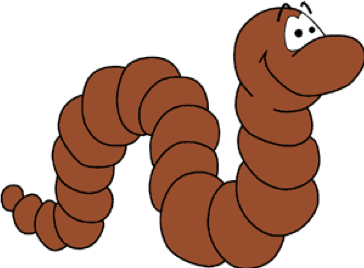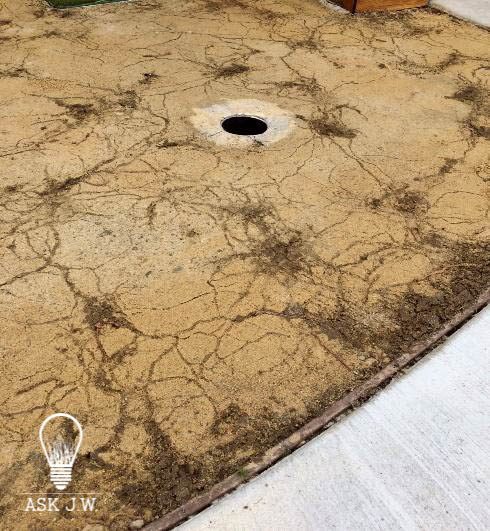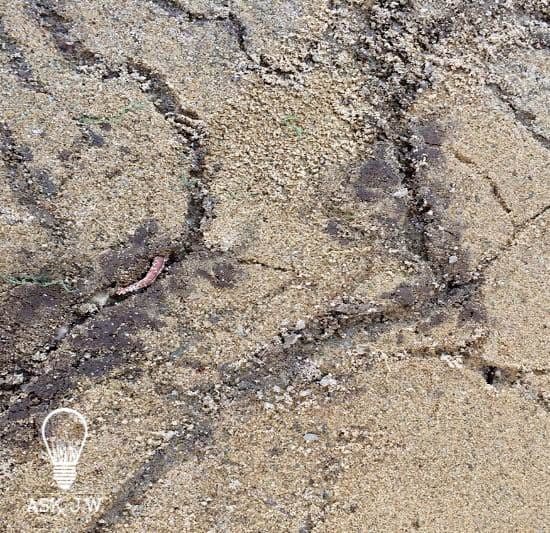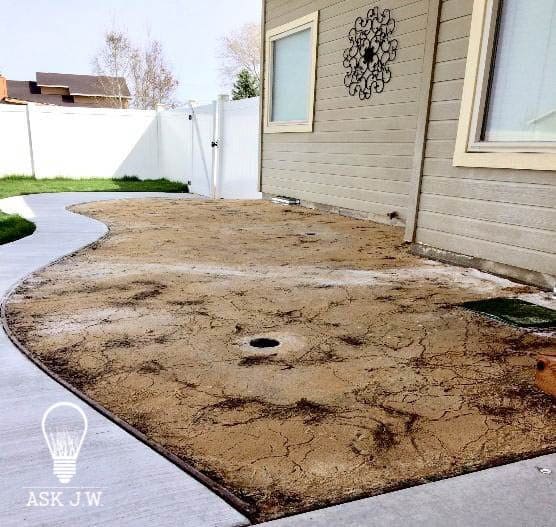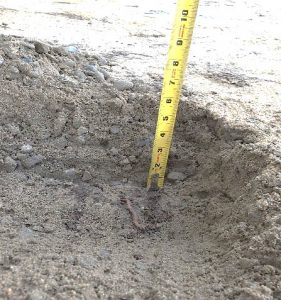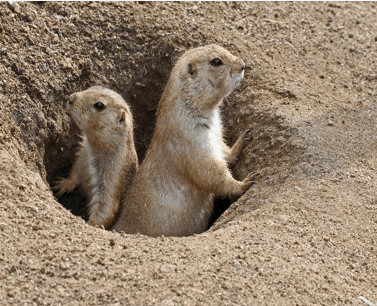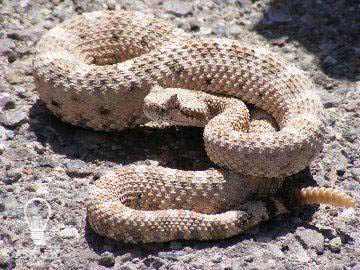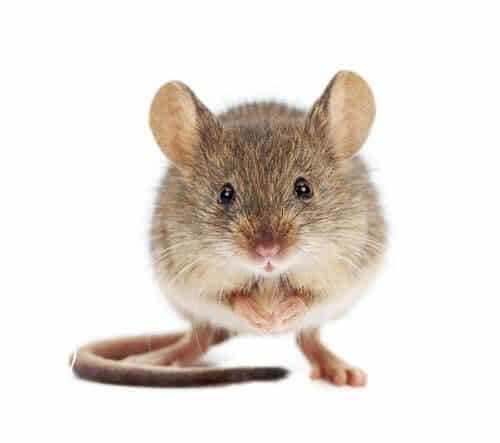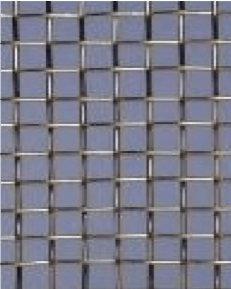Putting, Bocce, and Lawn Bowling Greens are not cheap. Homeowners save for months, even years to have one of these exciting surfaces installed. As synthetic turf professionals, WE need to understand and address underlying issues and prevent the destruction that may occur below the surfaces of Putting, Bocce, and Lawn Bowling Greens.
 This month ASK JW will explain how protecting the subbase may save thousands of dollars in protecting your investment.
This month ASK JW will explain how protecting the subbase may save thousands of dollars in protecting your investment.
Location
Most putting greens and bocce courts are placed with surrounding vegetation to give the area a natural look. Prior to going all “George of the Jungle” you will need to protect the base that will be installed for the playing surface. Not only will vegetation work its way to your playing surface, so will insects and vermin.
Emerging Objects
Tree roots can be devastating to any sports surface, especially putting, bocce and lawn bowling surfaces. Contractors ignore growth and direction of vegetation when rushing to complete a putting green to find out years later their clients investment has been “up-rooted” and left with a mess to fix.
Bio-Barrier
Bio-Barrier is used for root control. When tree roots reach the barrier they are stopped from penetrating and start to curl away in other directions while roots outside the barrier zone continue to grow. The Bio-Barrier has little “bumps” or as I like to say “Junior mints” on the durable geotextile drainage fabric contain Trifluralin. Trifluralin prevents root tip cell division. Proven by more than 35 years of agricultural use, Trifluralin is an effective, non-systemic herbicide; it simply creates a zone around your hardscape and landscape investments that inhibits root growth. If you want to sleep at night knowing your brand new putting green is not being attacked by roots, I would spend the money to excavate and place a bio-barrier.
Yes ! Worms ! Worms can destroy putting, bocce and lawn bowling subgrade materials. Those little critters can create havoc when they take home beneath your playing surface. They create channels below the soil and when the soil erodes it creates an uneven playing surface. If there is excessive moisture it may become worse. When the soil is flooded the worms cannot get enough oxygen so they come to the surface to breathe. The picture to the left shows how deep the earthworms can be. You will never know if they attack the subgrade soil until your surface starts to show irregularities. I would keep a track of your water usage and soil condition that is in areas of sports surfaces.
Worm-Killing Chemical is a Vermicide.
I have researched the information below so that you can I identify what chemicals can be used for earthworms and may not be harmful to synthetic turf. I recommend always doing a test prior to placing any chemical on synthetic turf. I recommend hiring a contractor who has the necessary Certificate of Competence to use professional pesticides on synthetic turf.
__________________________________________________________
“University researchers identified other toxic chemicals that homeowners and lawn services may use [to kill worms]:
| ● 2,4-D
● acephate (Orthene) ● azinphosmethyl (Guthion) ● bendiocarb (Turcam) ● benomyl ● captan ● carbaryl (Sevin) ● carbendazim ● carbofuran (Furadan)* ● chloropicrin ● copper sulfate ● cypermethrin (Ammo, Cymbush) ● D-D fumigant ● diazinon |
● endosulfan (Thiodan)
● esfenvalerate (Asana) ● ethoprop (Mocap) ● fonofos (Deafened) ● malathion ● metam-sodium (Vapam) ● methomyl (Lannate) ● methyl bromide ● metribuzin (Sencor, Lexone) ● nicotine ● paraquat ● parathion ● phorate (Thimet), ● thiophanate-methyl (Topsin-M)
|
http://www.azcentral.com/home/garden/articles/
Gopher, Snakes, Squirrels & Field Mice
In some parts of the country rodents (Gopher, squirrels and field mice) are digging up and through the synthetic turf. This is very costly to patch and many times the entire area must be removed, holes filled, and new synthetic placed. Gopher screen is a wire mesh barrier that is laid underneath the compacted subgrade materials prior to placing the synthetic turf. If you’re located in an area susceptible to rodents or any other type of creature trying to surface from underneath, do not take the chance and place some type of mesh screen that will keep them at bay
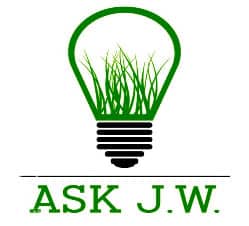
Get educated and take all precautionary measures to protect your investment. Prevent roots, earthworms, gophers and other rodents that may want to destroy your playing surface…I am sure your golf game is bad enough. ☺
For more information regarding this column, please contact J.W at 888.846.3598 or email AskJW@SGWcorp.com
Suggestions for the use of ASK JW installation techniques are solely at the end users discretion; however, the user should determine suitability for the intended use by his/her own evaluation. Because the use of the materials is beyond our control, neither ASK JW nor SGW shall be liable for the outcome of any use of said materials including any injury, loss, or damage, direct or consequential, arising out of the use or inability to use these techniques and products.
